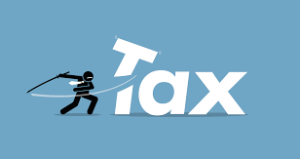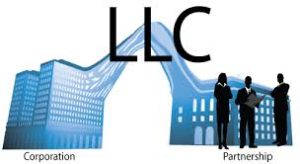Man, there are a lot of different types of retirement accounts. We’ll try to clarify what these things are. So that way you can understand how to use them and what the benefits are. And I pray that someday maybe Congress will simplify all of this so there aren’t so many different types of accounts with different tax treatments and different ways to fund them all this other junk. But for now, we have a list of different ways to put money away for retirement, all of which are a good thing. It’s nice that we have these. It’s good that they have some tax benefits with them. But it’s a lot to keep straight.
Most people are familiar with IRAs. And they’re called individual retirement arrangements, that’s what IRA stands for. We also have 401Ks that are commonly known. There are 403bs, which not as many people have, but they’re similar enough to 401Ks that for this purpose we’ll kind of combine them together and talk about 401Ks and 403bs together. And then we have, if you own a business, you have SEP IRAs or you could have a SIMPLE IRA. There’s lots of other different types of retirement plans and different types of accounts, but for today’s purpose we’ll stick with this. We’ll talk about the IRAs, the 401K and 403b, and the SIMPLE IRA and the SEP IRA.
Let’s start off by clarifying one thing, which is in both the IRAs and also the 401Ks, you’ll typically have, or you’ll always have for the IRAs, have a Roth option and a Traditional option. For the 401Ks, you may have a Roth option, you may not. It just depends on your employer. And what I wanted to clarify, is that the tax treatment for anything labeled as Roth is that you don’t get any tax benefit up front, but the money that you put in there never gets taxed again. It can grow as much as it can, and you will never pay taxes on that money. That’s the big tax advantage there. On any other account, the tax treatment is the exact opposite, where you get a tax benefit now but when you take the money out in retirement, you get taxed then. So you get deduction now for taxes, but you pay taxes on it later. Whereas a Roth, there’s no deduction now, but also no tax ever again. So let’s clarify that right up front. Roth, no benefit now but big benefit later. Any other account, which is typically, they’re called traditional accounts in layman’s terms, any other account you get a tax deduction now, but you’re taxed on it later.
So an IRA account can be funded by anybody with earned income. So if you have, you’re making money off of dividends or interest from a bank or something, not like they pay interest, but if you’re making money that is not considered earned, as in you working for it and getting a paycheck, then you can not contribute to an IRA. But, for 2020 you can put up to six thousand dollars into an IRA account using earned income. A 401K and 403b, those go through employers. So a company will set those up and allow you to contribute to those, in much larger dollar amounts than just a traditional or Roth IRA. And then oftentimes the company will provide some sort of matching benefit to give you additional money if you are contributing. And yes, you can do both. You can put money into a 401K, and then also put money into your own IRA account. Those are two completely separate retirement investments. You can do both on your own. So you can take money out of your paycheck into a 401K and then also take money from your bank account and put it into an IRA. Those are what most people are familiar with.
If you own a business, you have a couple of other options. You have what’s called a SIMPLE IRA and a SEP IRA. A SIMPLE IRA, really isn’t that simple unfortunately. But a SIMPLE IRA allows you to have a 401K-like retirement plan for your business where employees can contribute and then you are required to match it. The reason it’s called SIMPLE is because there’s just less administration and less compliance involved in a SIMPLE IRA than if you’re setting up a 401K account. Because with the SIMPLE IRA, everybody has their own IRA account and all the employees contribute to that if they choose to, and you are required to match up to a certain amount in that account. Again, it’s just called SIMPLE mainly because there’s less administration, less compliance, than running a 401K plan. A SEP IRA is another retirement account where employees don’t contribute to it, but an employer can. Now SEP IRAs we typically see in situations where there is just one owner, one employee. So somebody that’s self employed where all they’re doing is essentially contributing to their own retirement account. They might use a SEP IRA because they have much, much higher contribution limits than a regular IRA does. So a lot of larger businesses or those with tons of employees won’t necessarily have a SEP IRA, they’ll most likely use a SIMPLE or a 401K plan.
I hope that helps clarify that a little bit. Most people are just going to be focused on the IRAs and the 401Ks, but if you own a business, just understand that you have different options. You have a SIMPLE IRA, if you have employees. That will be less administrative costs and hassle than a 401K; it’s a option. But 401Ks are getting better and cheaper all the time really, and the new Secure Act that was just passed will also help alleviate some of the costs and complexities as well in the future. But as a business owner you also have access to a SEP IRA, especially if you are the only owner/operator. That can be a great way to set a lot of money aside for retirement and also save a ton on taxes. Hope that helps clarify all the different retirement accounts available to you. If you have questions, please reach out to me. I’m happy to help.








